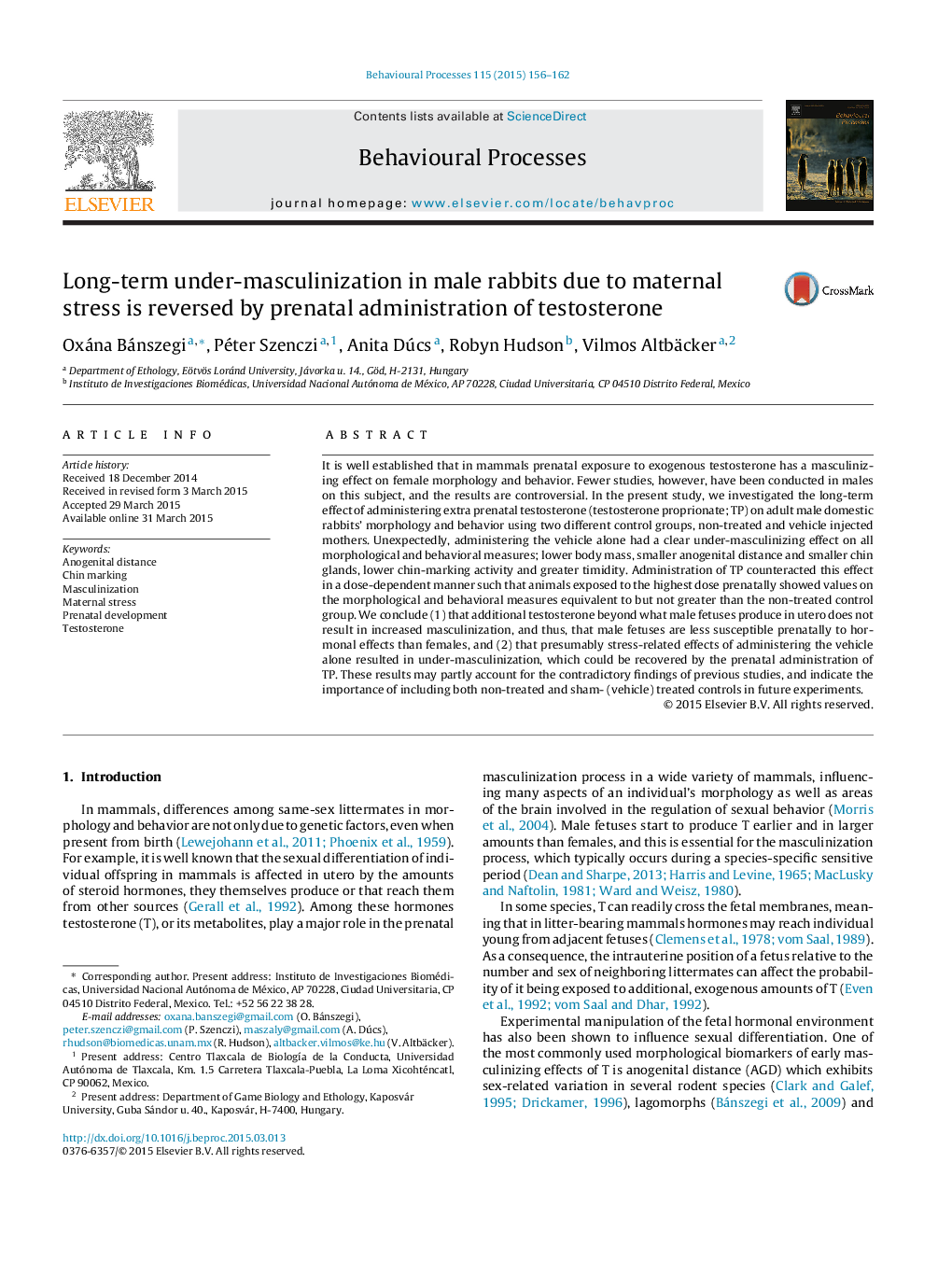| کد مقاله | کد نشریه | سال انتشار | مقاله انگلیسی | نسخه تمام متن |
|---|---|---|---|---|
| 2426605 | 1553165 | 2015 | 7 صفحه PDF | دانلود رایگان |
• Exogenous prenatal testosterone has no extra masculinization effect on males.
• Injecting the mothers caused under masculinization on their sons.
• Altered behavior and morphology of the sons suggested effects of maternal stress.
• Exogenous testosterone administration appeared to counter the effects of maternal stress.
It is well established that in mammals prenatal exposure to exogenous testosterone has a masculinizing effect on female morphology and behavior. Fewer studies, however, have been conducted in males on this subject, and the results are controversial. In the present study, we investigated the long-term effect of administering extra prenatal testosterone (testosterone proprionate; TP) on adult male domestic rabbits’ morphology and behavior using two different control groups, non-treated and vehicle injected mothers. Unexpectedly, administering the vehicle alone had a clear under-masculinizing effect on all morphological and behavioral measures; lower body mass, smaller anogenital distance and smaller chin glands, lower chin-marking activity and greater timidity. Administration of TP counteracted this effect in a dose-dependent manner such that animals exposed to the highest dose prenatally showed values on the morphological and behavioral measures equivalent to but not greater than the non-treated control group. We conclude (1) that additional testosterone beyond what male fetuses produce in utero does not result in increased masculinization, and thus, that male fetuses are less susceptible prenatally to hormonal effects than females, and (2) that presumably stress-related effects of administering the vehicle alone resulted in under-masculinization, which could be recovered by the prenatal administration of TP. These results may partly account for the contradictory findings of previous studies, and indicate the importance of including both non-treated and sham- (vehicle) treated controls in future experiments.
Journal: Behavioural Processes - Volume 115, June 2015, Pages 156–162
